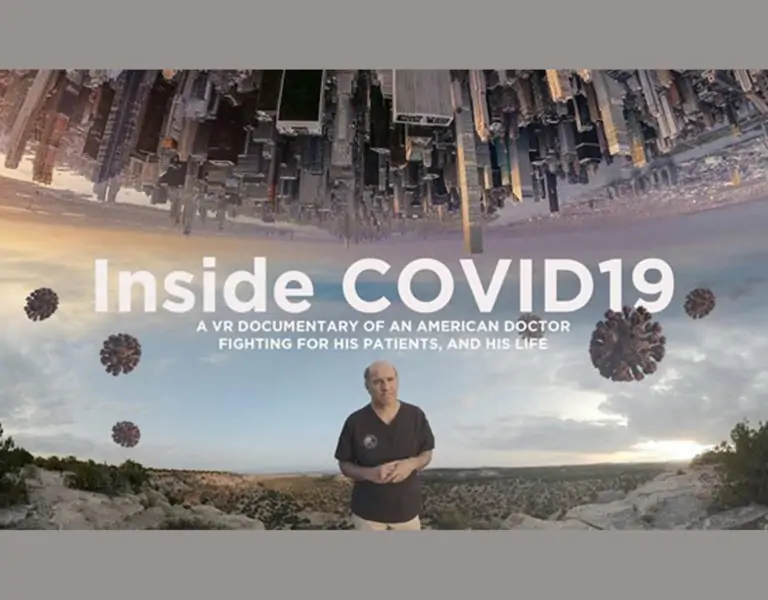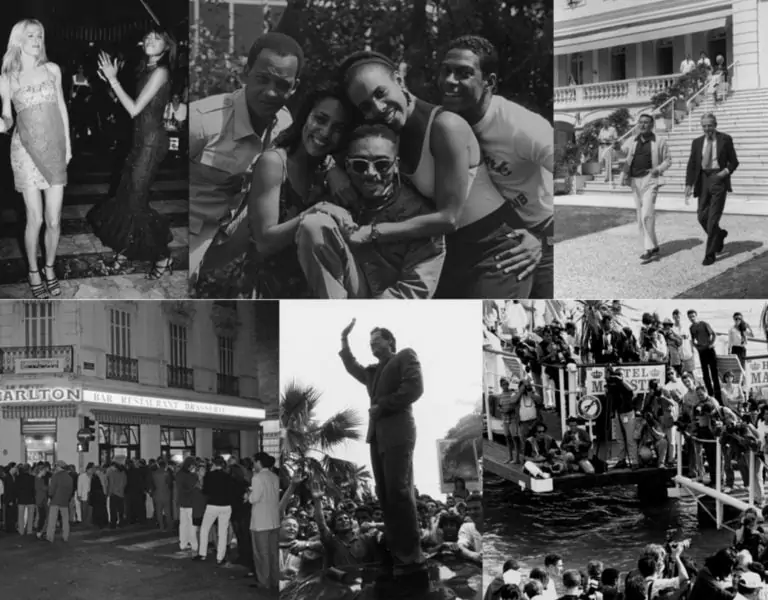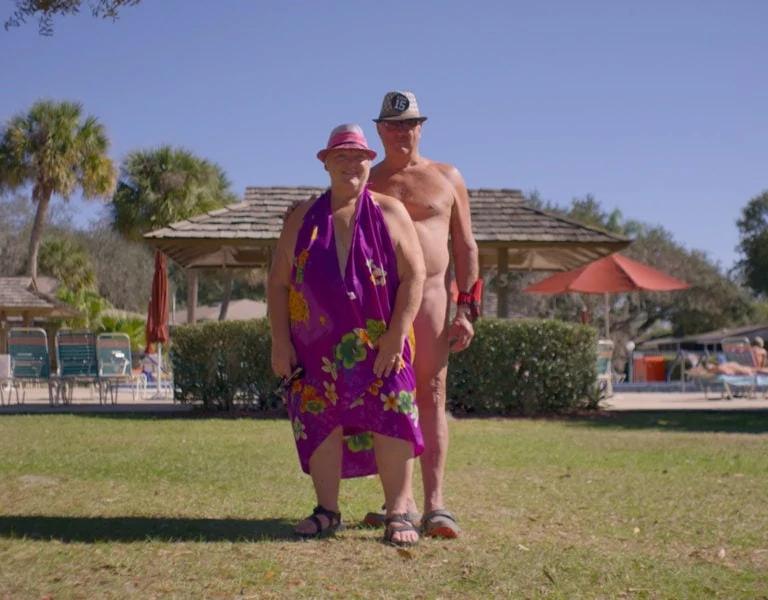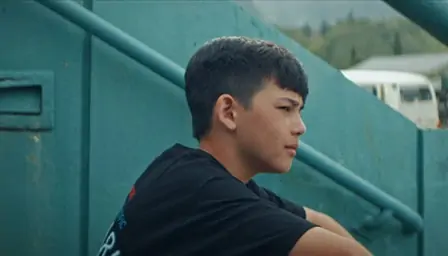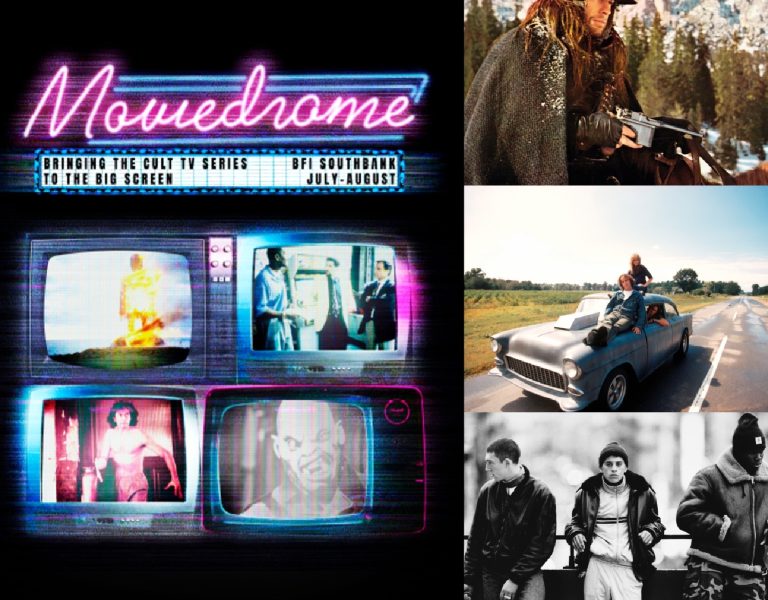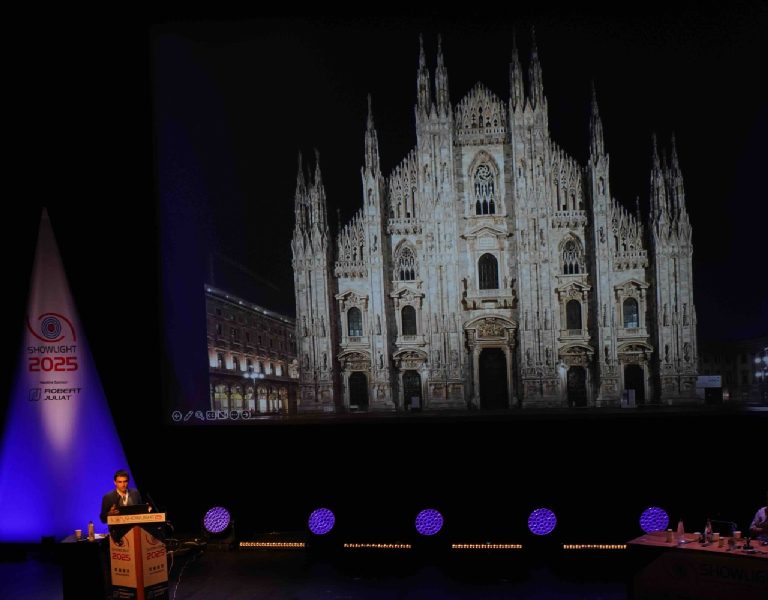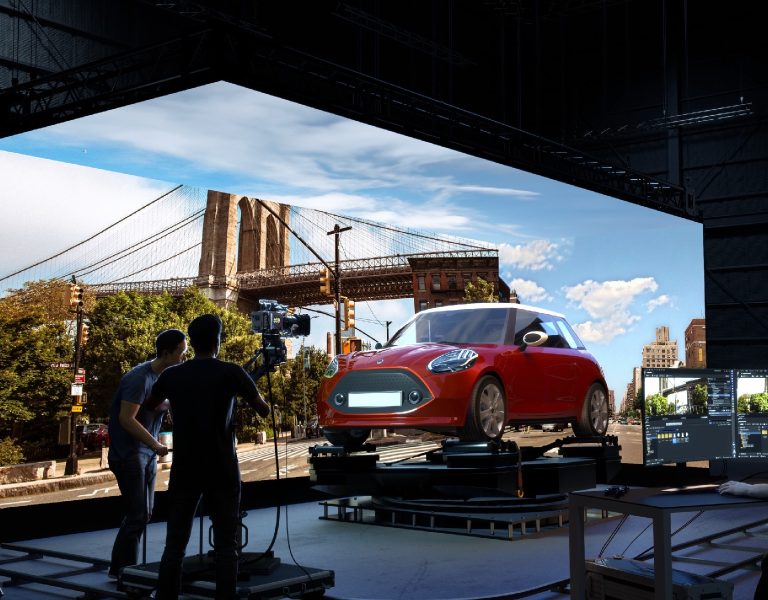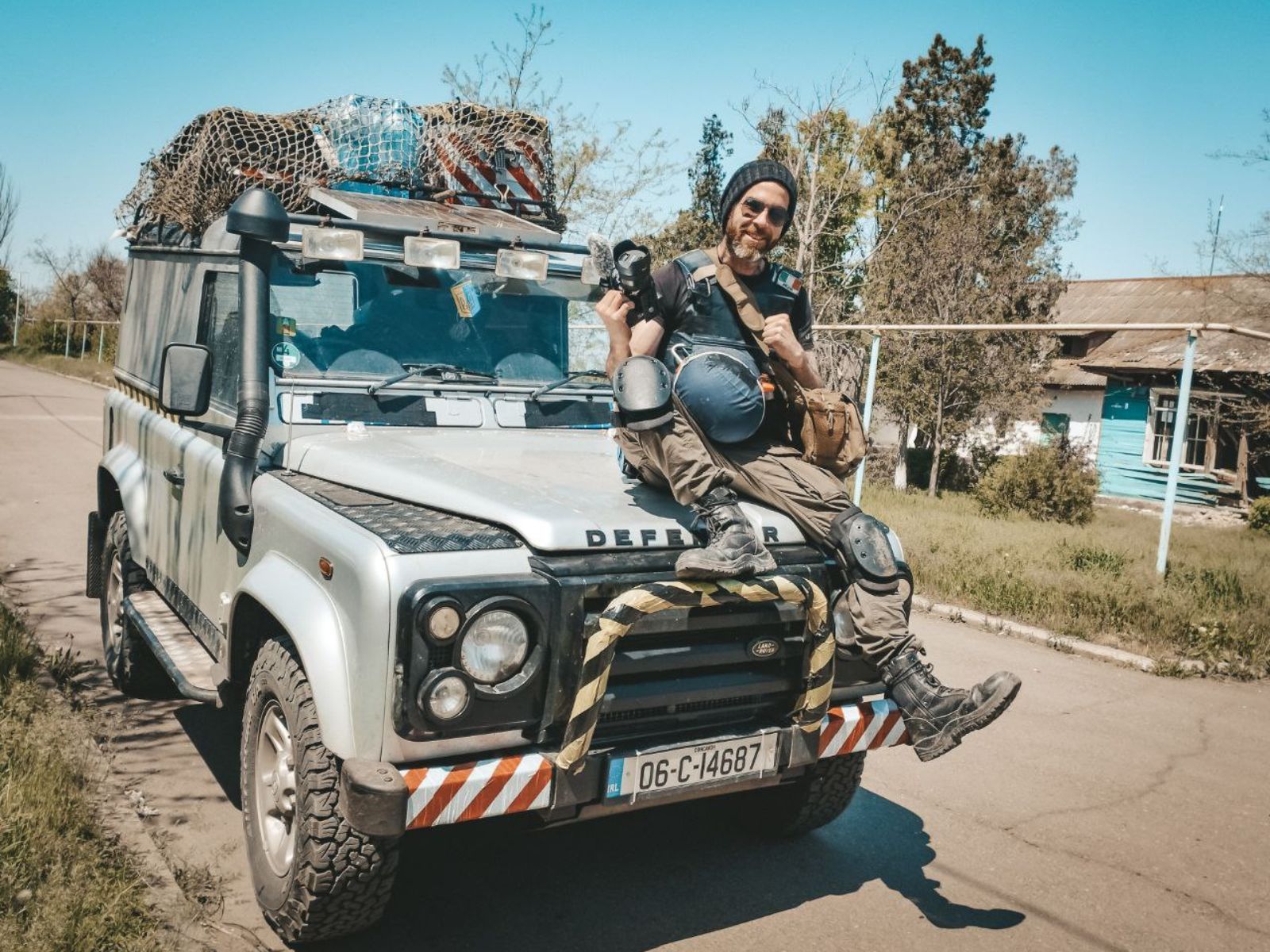
MetFilm School graduate Finn Boylan is making a name for himself telling stories from some of the world’s most dangerous places. From Kashmir to Karback, West Bank to West Sahara, his work has taken him far and wide. Now, having spent most of 2022 in Ukraine, the 30-year-old Irishman has almost completed filming his first feature-length documentary, Forsaken Frontier.
Finn grew up in County Wicklow, Republic of Ireland, between the mountains and the sea. “It’s a beautiful place: we call it the ‘Garden of Ireland’,” he says. “Dublin city is just 25km away, so I got the best of both worlds, nature and city life.” By his own admission he had a ‘comfortable’ childhood, adding: “But I was a bit of a troublemaker as a boy and regularly the law had to be laid down by my parents.”
As a dyslexic person, school and university was difficult for Finn. Reading was an issue, and he found the best way for to learn was through audiovisual aids. He explains: “Audiobooks were a great help for me, but I particularly enjoyed documentaries. If I had an image and information together, I wouldn’t forget what I was learning.
“I became fascinated by history and politics and documentaries became the primary learning tool for me, so I was always watching, learning, and enjoying documentaries from an early age.
“When I was 10 years old, the peace process in Northern Ireland was completed with the signing of the Good Friday Agreement and the decades-long conflict in the north ended. I remember seeing the military border infrastructure coming down and images of the British Army leaving the streets of Northern Ireland. While the national border did not move, internal politics did, and a lot was achieved.
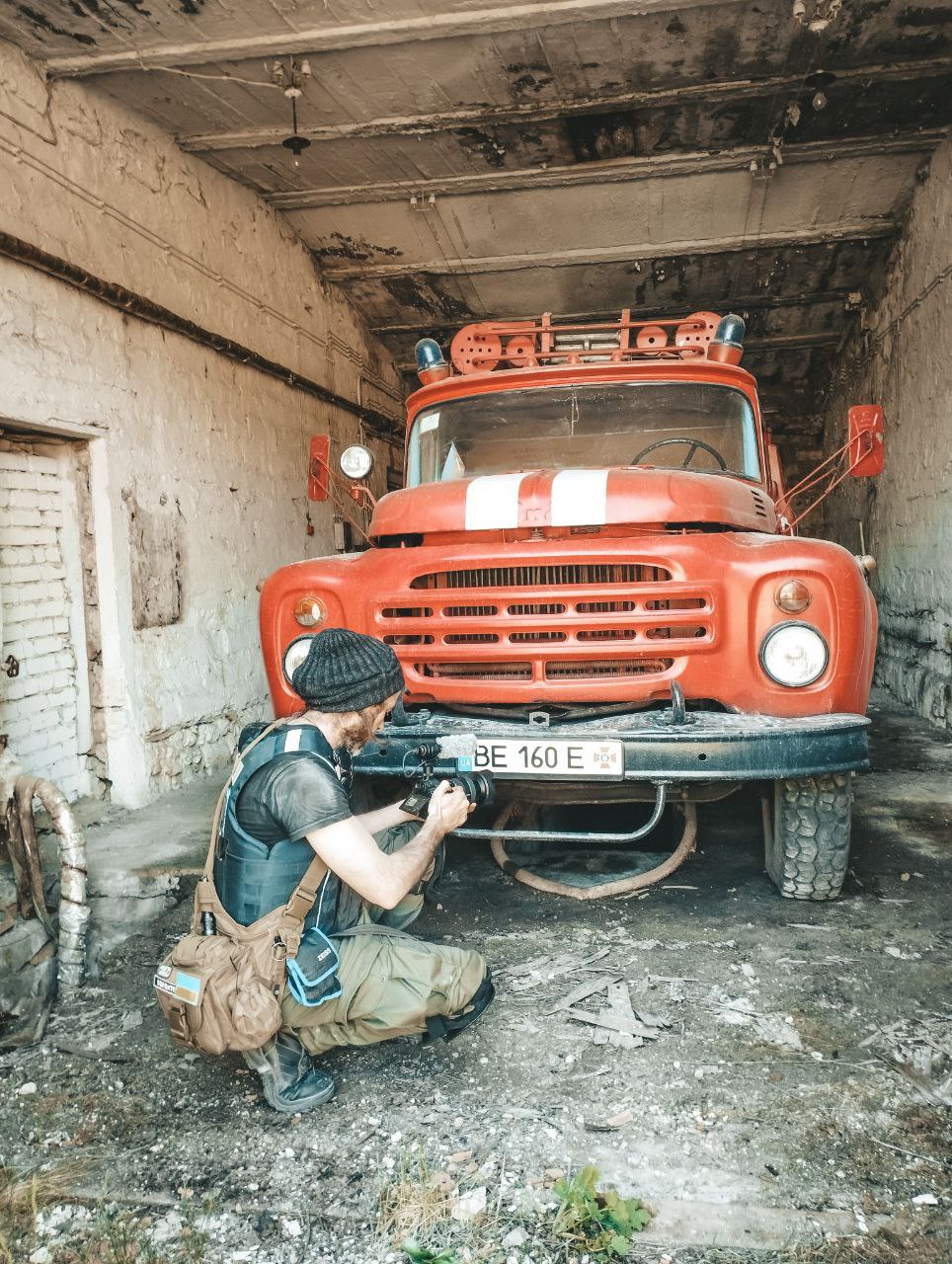
“So, I have always been fascinated by history, geopolitics, borders, ethno-national/religious conflict and how it all plays out on the world map. Every nation state that exists today in its modern form with national borders, is a result or an outcome of conflict.
“Growing up in Ireland I understood that the Irish nation exists solely because of the national struggle against its neighbour, Britain. The paramilitary groups who fought the British, previously labelled as terrorists, are now in government in Northern Ireland. I understood at a very young age that war is politics by other means. It was this understanding that drove me to learn more about global conflicts, culminating in my graduation from University College Dublin with a BA in History in 2014.”

Finn’s graduation coincided with the Maidan Revolution in Kyiv. Finn says: “I was glued to it; it was like watching the images of nationalist riots in Northern Ireland in the ’70s and ’80s. I had never seen anything like it in the 21st century.
“Seeing protestors gunned down on the streets of Kyiv had a profound impact on me. I knew then that the long peace that we have enjoyed in Europe was indeed very fragile. And then came the annexation of Crimea and the outbreak of war in Donbass.
“Viewing the war through my Irish cultural and historic lens, I drew many similarities between the history of my country and what was unfolding in Ukraine. However, I knew that the situation in Ukraine had a far greater chance of upsetting the geopolitical world order than Ireland’s ever did.
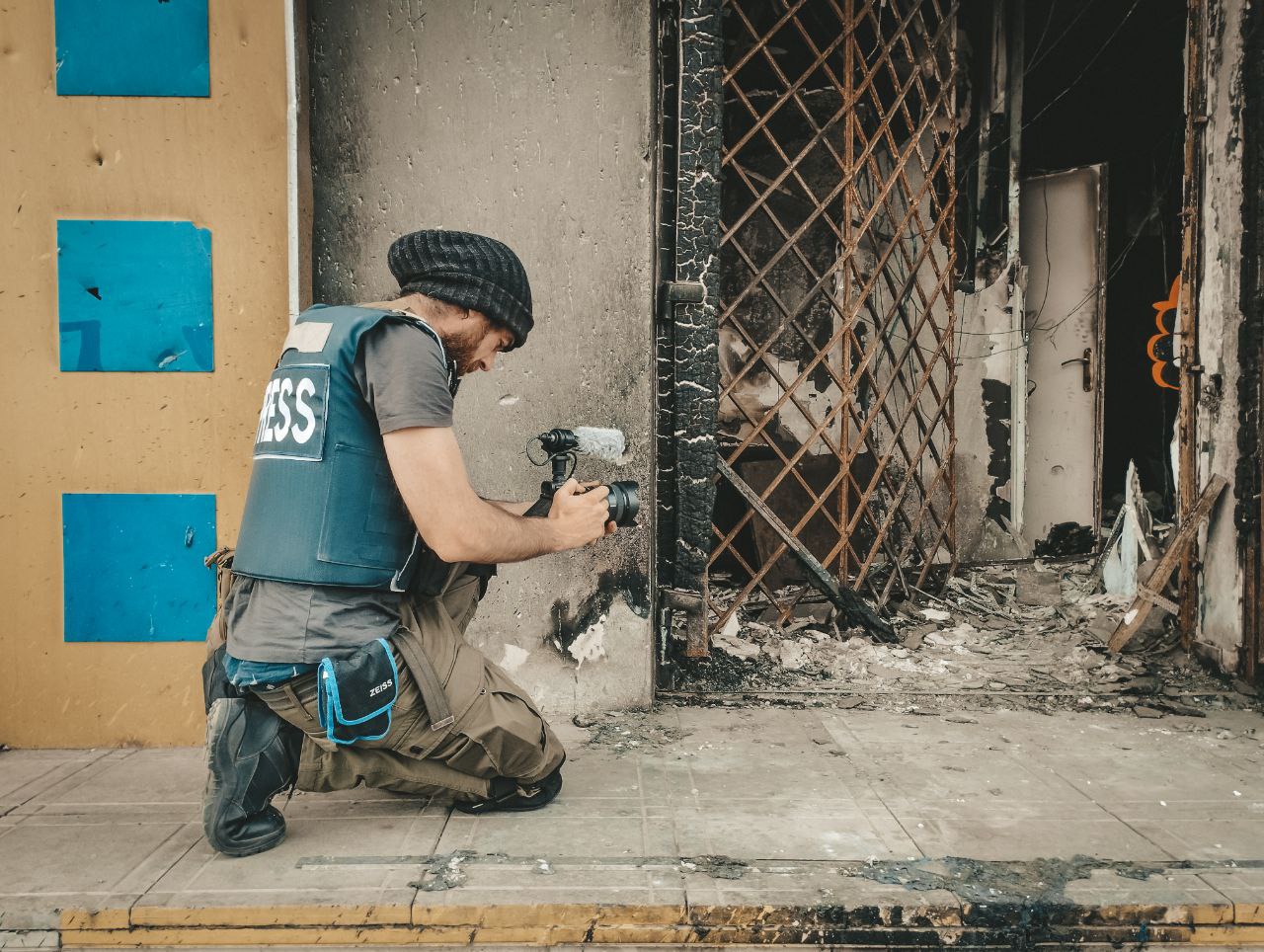
“In the back of my mind somewhere I knew that I would be a part of capturing this history as it happens. I just needed the right skills to be able to play my part in the historical record.”
After university, Finn hitchhiked from Berlin to Iran; An 8,000km hitchhiking journey which took him four months to complete. he says this really ‘lit a spark’ in his mind.
“So much weird, wonderful, and sometimes crazy stuff happened. I was bitten by a snake when I was alone in the Iranian desert, it made me think… I am the main character in my own film. What if I just start to document what is happening around me?”
This experience, coupled with his continuing interest in Eastern Europe, led him to the realisation that he wanted to become a documentary filmmaker, so he applied to MetFilm School.
He says: “So, when this next phase of the conflict broke out, I was ready, all my roads had led to this moment, there was only one way I was going, it was East.
“Getting my MA in Documentary & Factual Filmmaking was a game changer for me. But it was a steep learning curve. I had only been using a camera for a year before I started, but I knew the types of stories I wanted to tell, stories from the fringe, stories from the edge, stories that people could not believe were happening.
“I just did not have the skills or industry knowledge to get to the point of being able to tell these stories successfully. Nor did I have any idea on how to market them.
“MetFilm School gave me three things. It gave me the skills I needed to be able to adequately capture my stories in shots, seriously developing my visual storytelling capabilities. It gave the skills to be able to edit my stories together. And, it gave me huge understanding of how difficult it is to market and sell your films.”
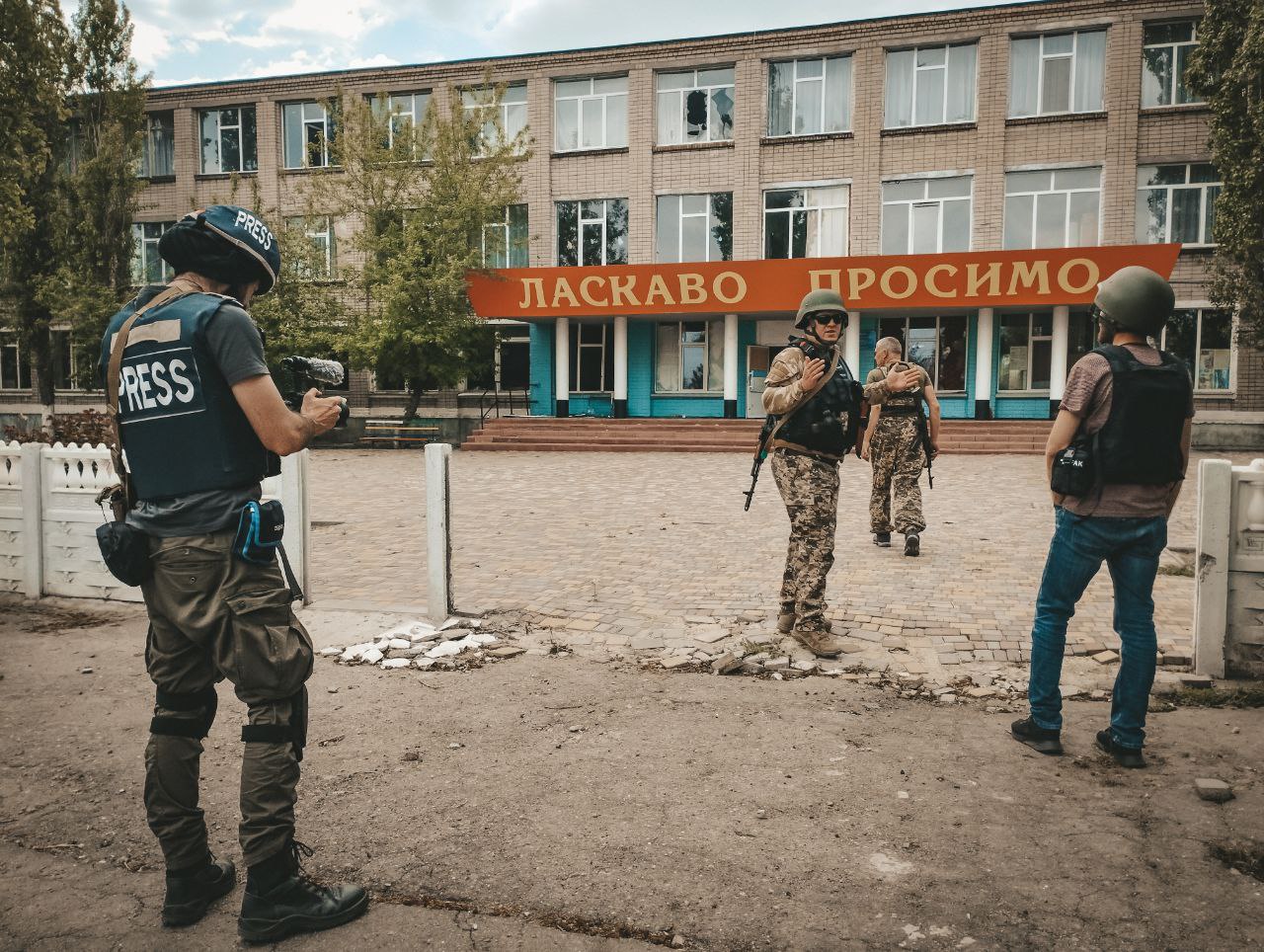
Finn arrived in Ukraine on 12 March, less than three weeks into the war. “I remember crossing the biggest border crossing from Poland at Medyka in freezing conditions,” he says. “The chaos was like nothing I’d seen before. Thousands of aid vehicles trying to get in were stalled as military convoys full of weapons from NATO countries poured across.
“When I finally got to the Ukrainian side, the human cost of what was happening was laid bare to see. Hundreds of thousands of people crammed together in a line that stretched kilometres with all the belongings they could carry.
“The suffering on their faces was surreal and gave me a taste of what I was going to witness in the coming weeks. It was freezing out, the elderly, the women and children were struggling to move in these arctic conditions.
“As I drove further away from the border, I could not believe the line of buses filled with more people, desperate to escape, it stretched for what seemed like forever.
“When I arrived in Lviv the town was buzzing with foreign languages. It seemed like the whole world was there. English was like a de facto second language due to the amount of international aid organisations, foreign journalists, and foreign fighters all networking with each other to find out where to go next.
“I spent a week in there trying to find my feet and after capturing my first taste of the war on my camera with a missile strike on an oil refinery in the city, I was hungry for more.
“I met three foreign fighters all heading to Kyiv to join the fight. One was an ex-American Marine, another a Swedish sniper and the third an Irish mechanic. It was this Irish connection that narrated what was happening in such a familiar accent to me, that gave me some kind of comfort going forward into the lion’s den.
“We were heading straight into the thick of it. The battle for Kyiv was raging, the Russians were at the gates, it was 20 March.”
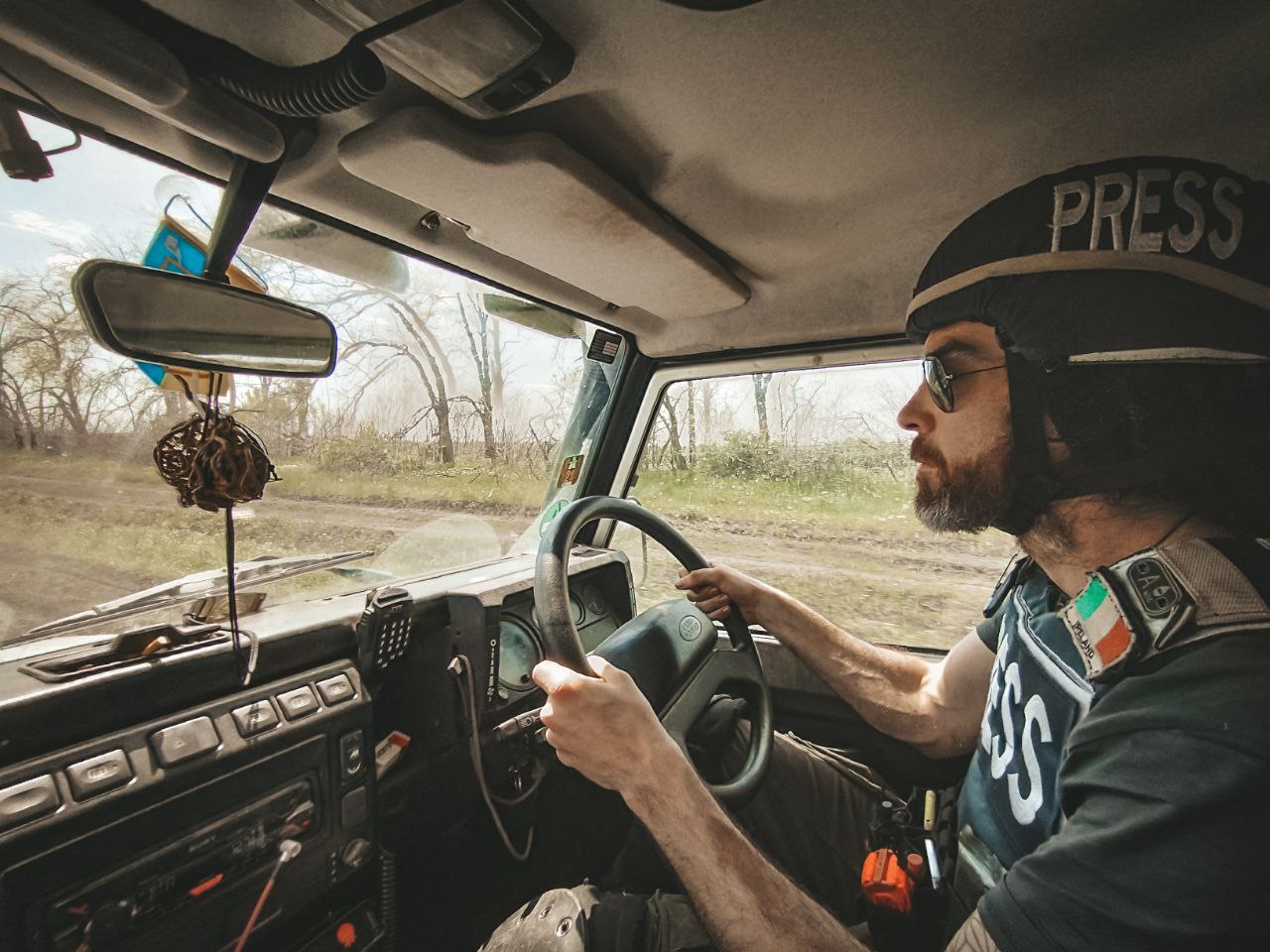
Upon arrival in Kyiv, the sound of shelling made it clear to Finn and his fellow travellers that they were in a war zone. Despite being 30km from the front line, the ground shook from explosions.
Finn met up with a Ukrainian filmmaker contact who took them to multiple safe houses, Finn spent three weeks in Kyiv and later travelled to the front line in Irpin. The destruction he witnessed en route was devastating, with buildings and vehicles destroyed and many bodies of civilians and Russian soldiers littering the road.
“The destruction was like nothing I had ever seen in my life; every building was completely devastated,” says Finn. “Bomb craters like an asteroid had fallen from space, Russian tanks littered the battlespace and of course the remains of dozens of dead Russians who had been left behind.”
As they travelled west, the devastation got worse. Finn saw bodies of civilians littered the road. He says: “Many had taken fire in their cars stopping their engines, forcing them to flee on foot only to be gunned down in the middle of the road.
“Many others did not get that far, their burned bodies still smoking behind the wheel of the car, as they took a direct hit from a tank round.
“Every Ukrainian soldier we saw was busy salvaging what munitions they could from the destroyed Russian positions. Their mood was high, they knew they had broken the back of the Russian attack and had held the line. Everywhere I looked there were bodies of dead Russians dead, some complete, many in pieces, others melted into their tanks.
“At this point I found it very hard to film, I did not want to make a snuff film. I wanted to show the horror of what had happened but being as tactful and respectful as possible. These were of course human beings; husbands, sons, brothers, and fathers they were all loved by someone.
“I tried to find a body that was whole and film from an angle that was tactful but left nothing to the imagination. I realised here, that there is no soft side to war, no one dies in a nice way, no camera angle can make this experience tactful. War is hell.”
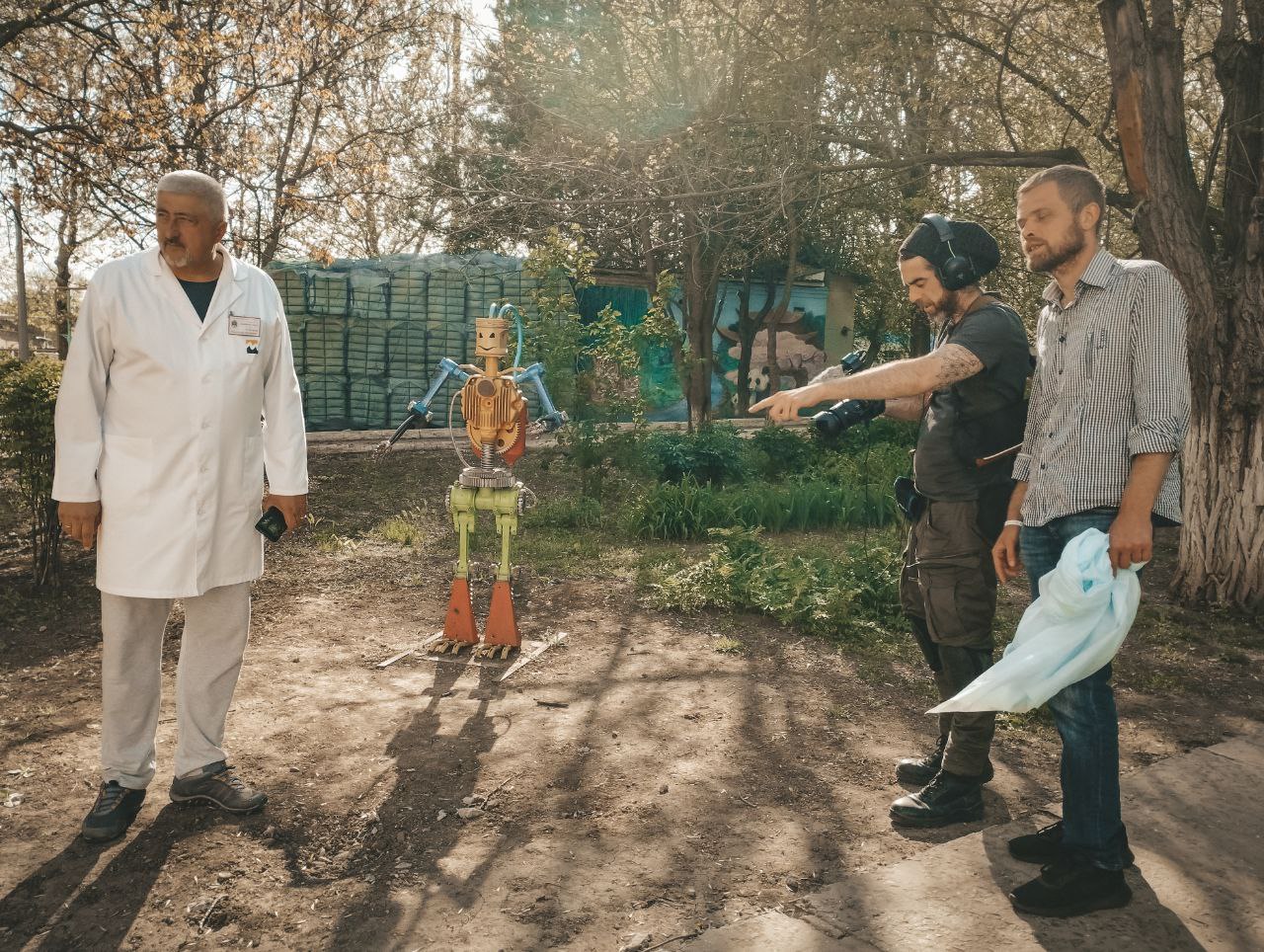
Finn was there on 1 April when the Russians pulled back to the Belarus border. He says that “the war crimes were laid bare for the world to see, but we fast forward to Mykolaiv a month later.
“I was with a Ukrainian press officer 13km behind the line in a village called Bilozerka. It had recently been liberated by the Ukrainians. At this point I was driving my own press vehicle which gave me a lot more mobility on the front.
“We arrived and parked outside the local high school. It had served as the headquarters for Russian operations in the area. We were in the building no less than five minutes when the first shell came in. Boom, it hit only a few hundred metres away from the building. We took cover in a hallway beside a stairwell, but the shelling continued, getting closer and closer.”
Realising they were being targeted, Finn knew they had to make a run for it. After narrowly escaping several explosions, they made it to their car and sped down a dirt road to safety. Finn removed all press markings from his car and body armour, fearing he would be targeted again.
He continues: “My car had clear press markings visible from the air, so the Russians knew why I was there. I guess they didn’t want any images of their military defeat on this front getting out. I consider myself very lucky to be alive and grateful for every moment I have lived from that point on. Every day is a bonus, I should have died that afternoon.”
Finn works hard to keep his emotions in check. “However,” he says, “coming back to the edit was where my emotions at times got the better of me. My camera was my shield. But in the edit I did not have this shield. I did not have adrenaline coursing through my veins. I was no longer in a fight or flight mode. I was forced to go through every second of my footage and re live it, over and over and over again.
“There were many moments I captured on film that I simply had no recollection of. Whether it was my brain filtering out the trauma of it all …I’m not sure. But I was not prepared for how difficult the editing process was going to be. It was for sure more difficult for me to edit the footage together than it was to be there, to capture it, to live it.
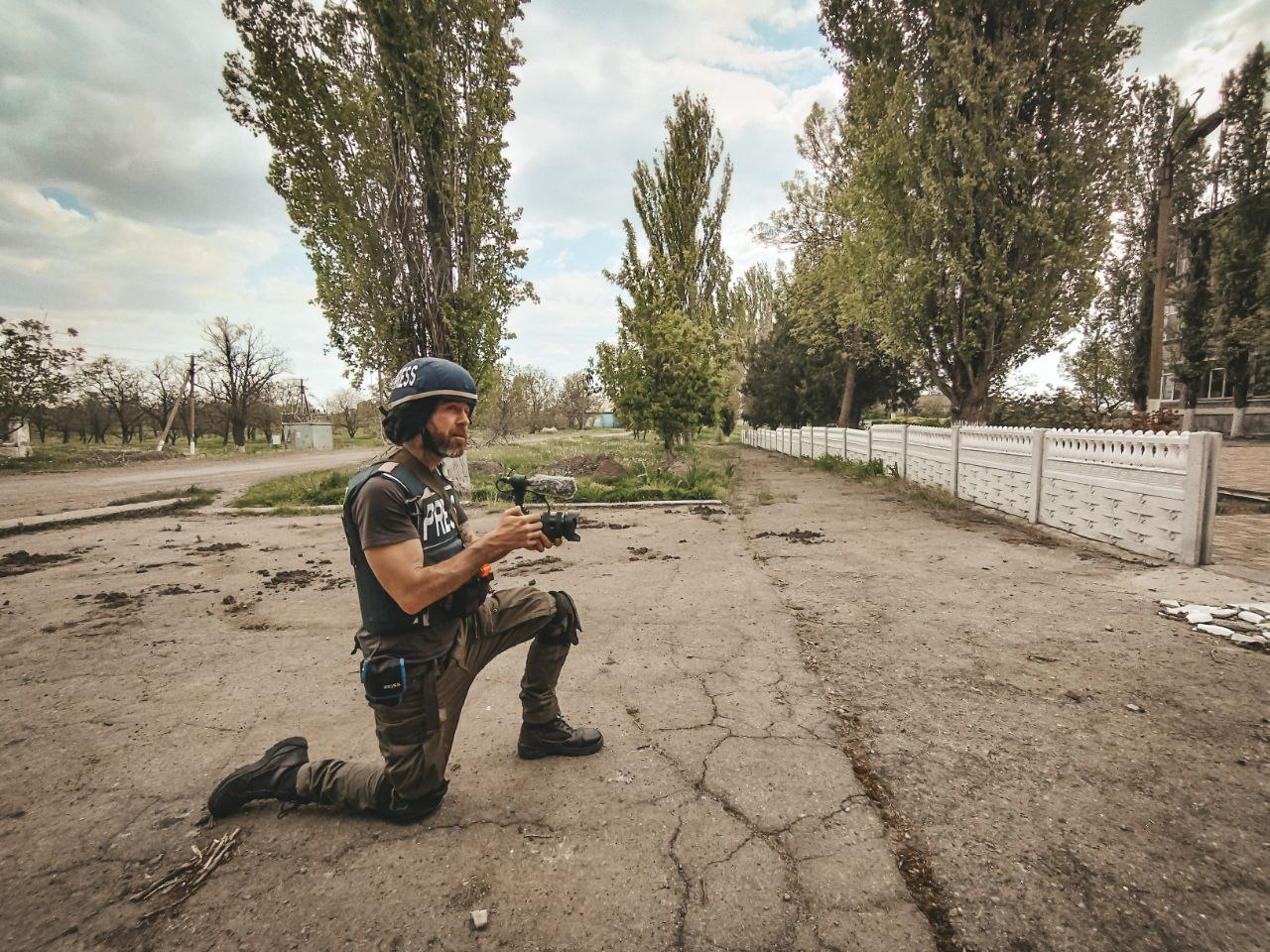
“This project has pushed me both personally and professionally in more ways than I fully understand yet. It has given me the determination to get stuck in and get out to places that many cameras would never make it to. It has forced me to completely rely on myself to bring the story home, no matter how hard the conditions are. I have been forced to perform as a one-man band, I do everything myself. From story development to camera, to sound, to editing to networking to driving and logistics.
“I have discovered an energy deep inside that I didn’t know was there. I have operated for weeks in extreme conditions with little sleep and poor nutrition, but still found that my passion for being part of the historical record eclipses any biological needs of my body. But there comes a time when the body begins to shut down under such conditions. For me it was about learning when to call it a day and rest and recover. After nearly two months under such conditions, I discovered that adrenaline fatigue and burnout are in fact, real things.
“Despite this physical reality I found it very hard to put the camera down and take a break. There is no break for the Ukrainians, this is their reality, and I am just a witness. I have the luxury of being able to turn back and take a break, they do not. This element of guilt in my mind has also become a motivator for why I go back.

“It’s very easy to get wrapped up and bogged down by the amount of information coming out from conflict like this. There is so much happening every minute of every day that it’s very easy to lose focus on what your mission is.
“I found it beneficial to focus on the purely human stories that are wrapped up in the wider context of what’s happening here. I ask myself, what human stories would I relate to as an outsider looking in? One thing I can relate to is the fear my girlfriend when I am in a dangerous environment. Although I am in extreme danger intermittently, my girlfriend worries every minute of every day for my safety. This is the same fear and paranoia shared by the families of every Ukrainian soldier who is part of this war.
“I tried to find a soldier to film with on the front and then get access to film with his family and I was successful. I found a soldier whose family members are refugees in Ireland. When I got home, I started the filming process with his family. I found the emotions his wife expressed were the same as my girlfriend’s when I am in Ukraine. I went back to Ukraine and filmed again with the same soldier on the frontline. This story brings the enormity of such a conflict into focus through the emotions that anyone can relate to, fear is a universal emotion.”
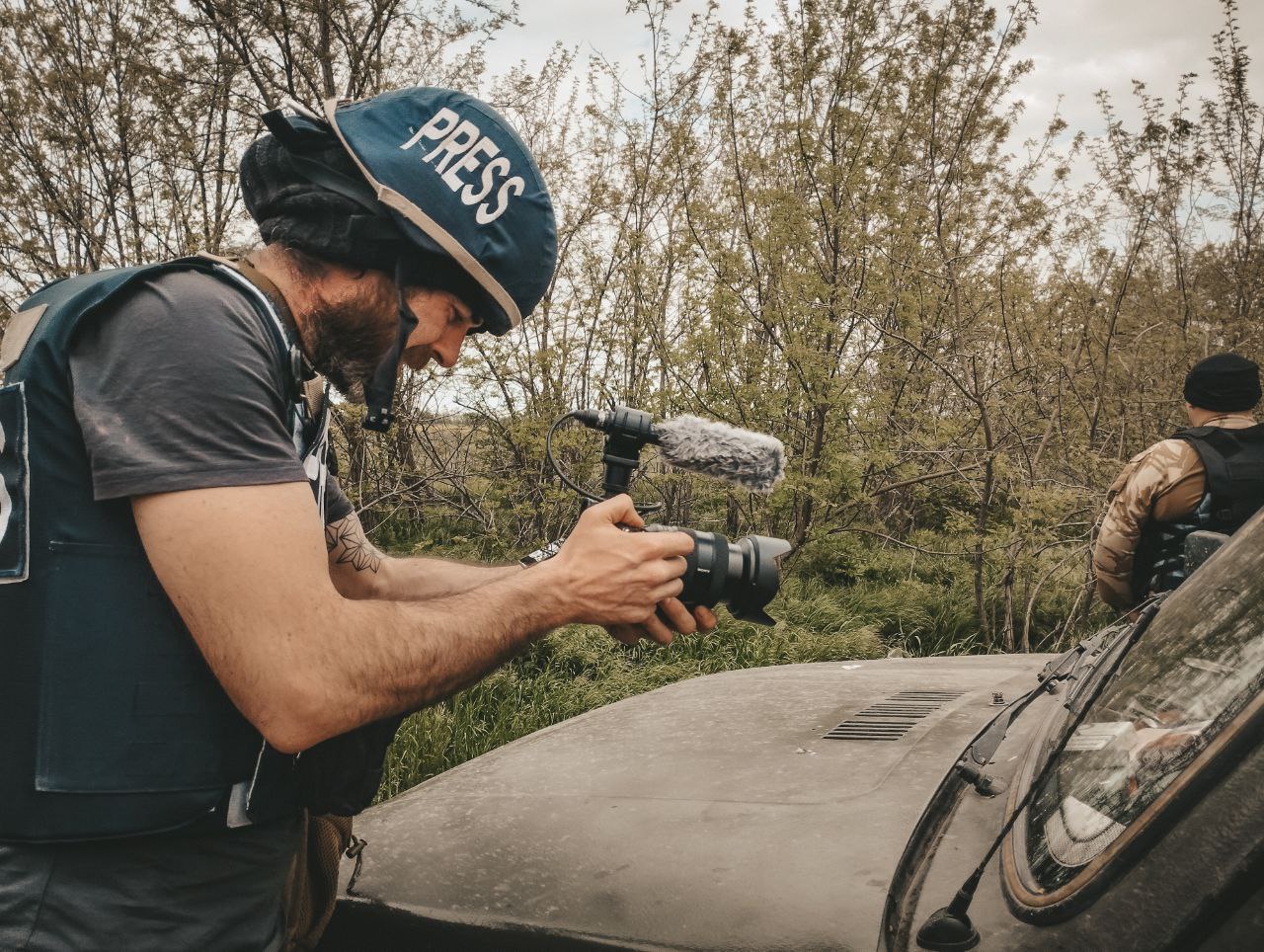
Throughout Finn’s time, back and forth to Ukraine, the planning has proved to be quite a challenge. He says: “I find the practical and creative elements of documentary production challenging. Planning everything to the letter is not my style and, I have found in Ukraine, that no plan survives contact with the enemy.
“The same can be said for life. However there comes a time when the practical aspects of film production require high levels of planning and this, at least for the moment, is what I am struggling with. But I am learning through experience, and I am learning through my mistakes and failures.
“Failure is a road to success as long as you don’t give up. But with some failures you won’t get a second chance. In Ukraine failure can be fatal.”
Finn has found that in his line of work he is always learning, because of his decision to work in inhospitable environments he has had to have some some proper medical training, he already has HEFAC (Hostile Environment First Aid Certificate) and HETT (Hostile Environment Trauma Training) and has recently completed a MIRA course (Medicine in Remote Areas). His goal for the end of the year is to be a certified Wilderness Emergency Medical Technician practitioner.
“I want to have the medical capabilities to look after myself and anyone on my production team if things go wrong while filming,” he says. “I will be returning to Ukraine soon, when the ground defrosts and the fighting intensifies.”
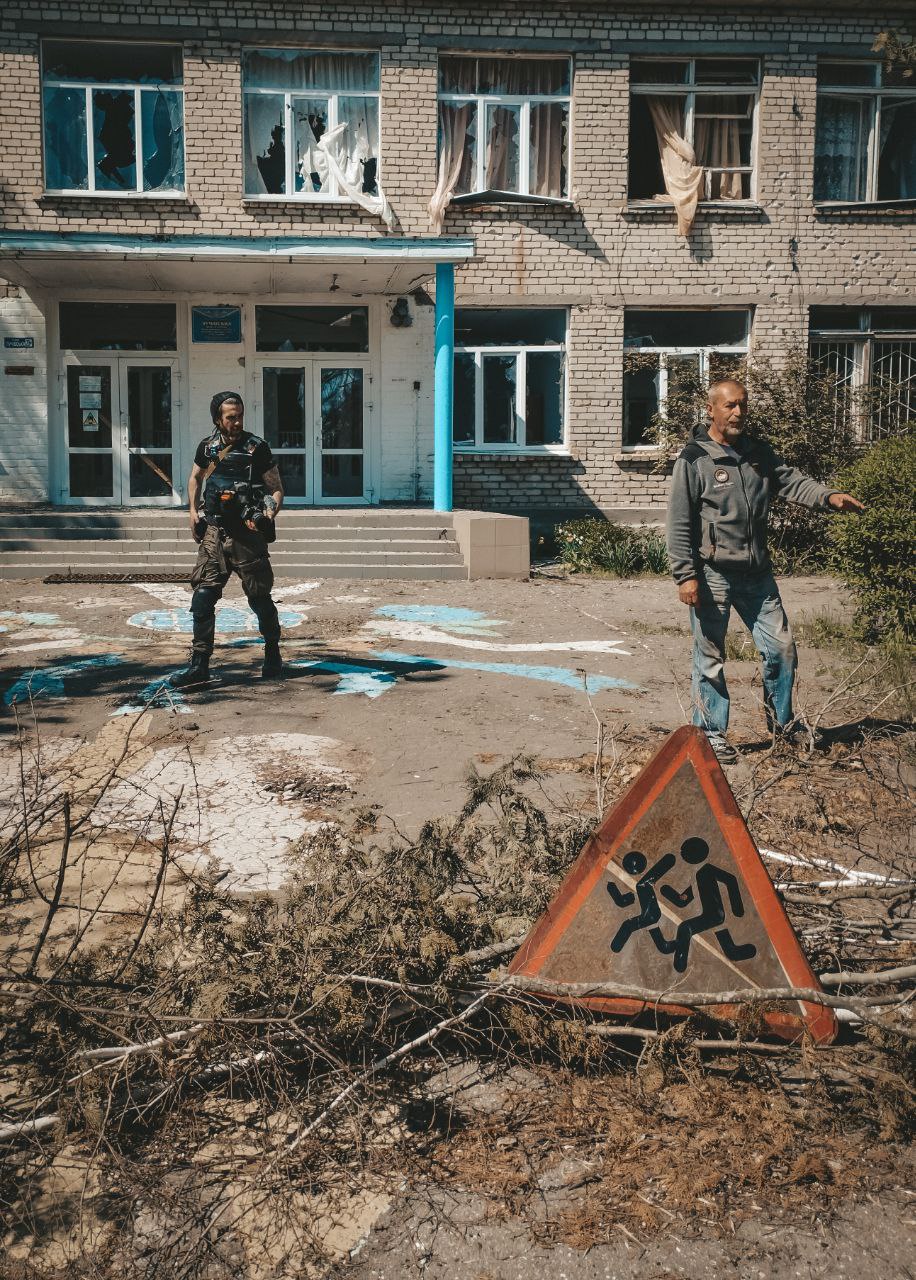
Finn’s top tips if you want to be a documentary maker.
Finn only picked up a camera for the first time six years ago, when he was 24, and advises anyone thinking about starting a career in the film industry to ‘start now’. “It will never be the right time to start anything, you will waste your time waiting for the perfect conditions to start,” he says. His advice is:
- Start now and learn through your failure and the more you fail the better adapted you become to the conditions you work in.
- Make a plan, set yourself yearly, monthly and weekly goals. Write down your goals daily on paper, even the smallest of stuff, like making your bed. Cross it off the list when it’s done and move to the next task.
- Lifelike conflict is all about momentum, you must keep the momentum moving forward on the small stuff to achieve the big wins.
- The analogy I like to use is from sci-fi movies that involve time travel, in time travel movies the smallest actions taken in the past, always have a massive effect on the future. The same can be said for the smallest actions taken by you now, you don’t know the massive effect they might have on your future.
- Start with small, positive daily actions, build the momentum and you will get there in the end, if you don’t give up.
The MA in Documentary and Factual Finn took at MetFilm School is available at its Leeds and Berlin campuses.
–
This article was supplied by MetFilm School.
